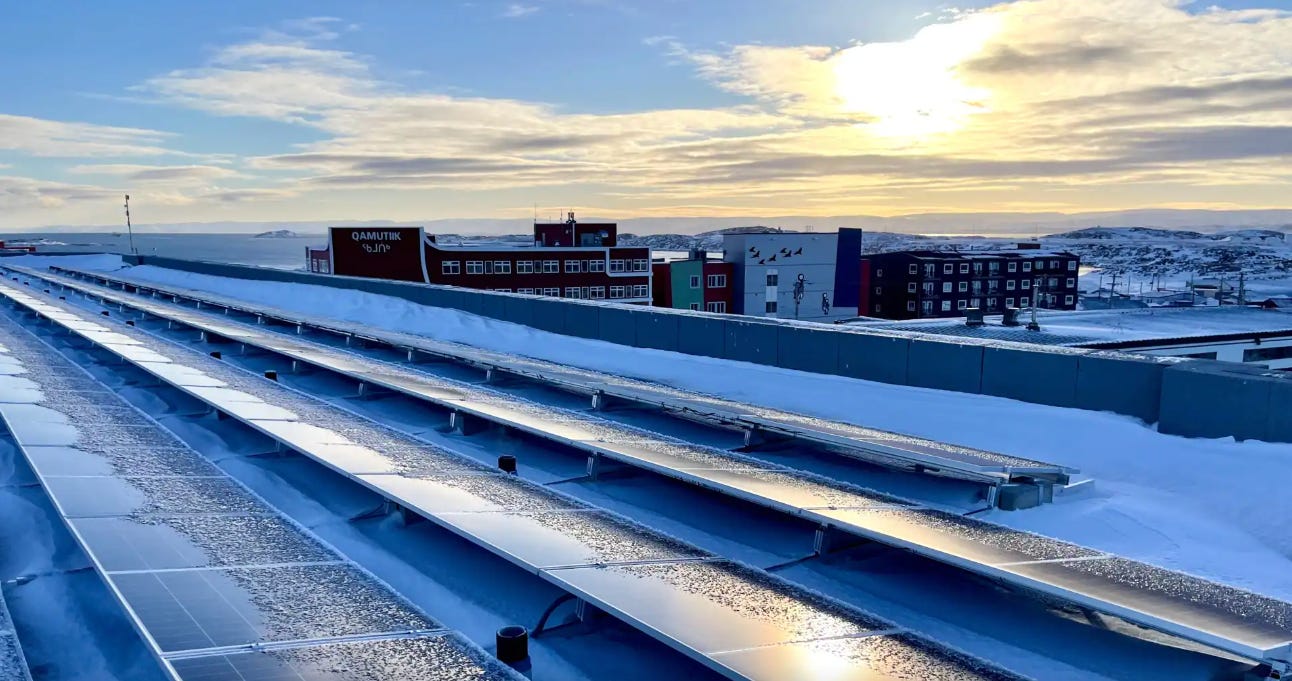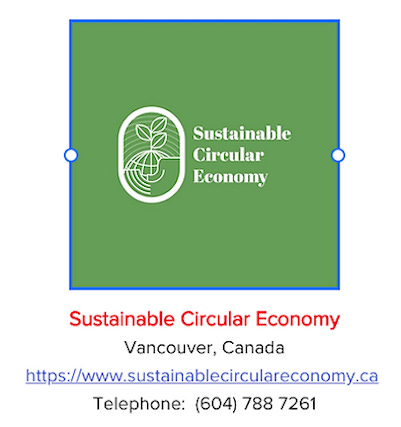Truth and Consequence
Why it’s so difficult for remote communities to do away with diesel and embrace renewable energy? One response; the bureaucratic system
Bureaucratic System
What is the Bureaucratic System? That is the whole of the regulatory environment, the project proponents, government and government bureaucrats, and let's throw in the public for good measure. I suggest the public because if we lead, the leaders will follow.
Where did all this come from? I read an article recently about the good folks in Nunavut working to flip their switch on a solar panel project that they say will be good for the people, the planet and sustainability. The three components of a circular economy that our company, Sustainable Circular Economy of Vancouver promotes for evaluating the benefits, the risks, the truth and consequence of potential environmental decisions.
Nunavut Project
In the case of the Nunavut project, it is ready to go. It is a solar panel array installed in 2021 - now sitting idle because of bureaucratic delays.
Taken at face value, the issue boils down to there are problems with "the benefits to the people." I have to give the bureaucrats credit. They are thinking of the downstream costs to electrical users - in short, taking a holistic look at what are the risks, the costs and the benefits.
What's the problem then?
The problem, looking from the outside in, could be as simples as:
The problem has not been clearly defined.
There is no list of options for resolving the issue.
There is no dedicated team approach to resolving the issues
There is a lot of complaining and finger pointing, no better result than the people who attempt to destroy paintings to attempt to make a point.
Project evaluation with a circular economy
Reuse, Recycle, Repurpose, and;
Triple Bottom Line - People, planet, sustainability
Triple Bottom Line?
The Triple bottom line theory expands business success metrics to include contributions to environmental health, social well-being, and a just economy. These bottom line categories are often referred to as the three “P's”: people, planet, and prosperity, all part of evaluation projects through the lens of a circular economy.
What's happening in the north?
Through the north, there are many communities relying on diesel generation for their electrical power that want to switch to alternate energy. I have no idea of how much CO2 the plants pump into the atmosphere each year. However, the amount is significant and should be a focus of government to eliminate quickly. Each day operating with diesel is a day lost towards 2030.
The sticking point, and I am not arguing the validity of the concern, is the cost of energy to downstream users. In short, there are those who suggest the potential outcome from the project may be good for those "living next door," but there is potentially a negative impact on those farther afield.
A valid concern, but why has the problem not been fixed? At Sustainable Circular Economy, we see people putting themselves in silos, with little impetus to get together to solve a problem thorough a multi-disciplinary approach.
So today, we have the north almost completely dependent on importing diesel for electricity and heating as part of an energy system that is unaffordable and unreliable, while also a major source of pollution.
What's the importance?
The importance is; This issue is affecting many projects in the north. In the Northwest Territories, there is a limit to switching to alternate energy systems due to downstream costing impacts to users. This issue is similar in Nunavut, all affecting the potential elimination of significant CO2 from the atmosphere, and reducing the cost of energy to many users.
Let's get on with it
Canada faces big challenges and ambitions to meet its climate goals by 2030. If there is to be success, we need to get together and get on with it.
At Sustainable Circular Economy, a boutique environmental firm in Vancouver, we are passionate about doing the world a world a good by evaluating options towards environmental sustainability against the backdrop of a circular economy where the considerations are what is best for the people, the planet and sustainability.
If you, your community or business wishes some help through this morass, we would love to help you. We want to be part of the solution.
Call us today or Email and please consider signing up for our newsletter. You will be glad you did.
Best wishes from all of us at:




